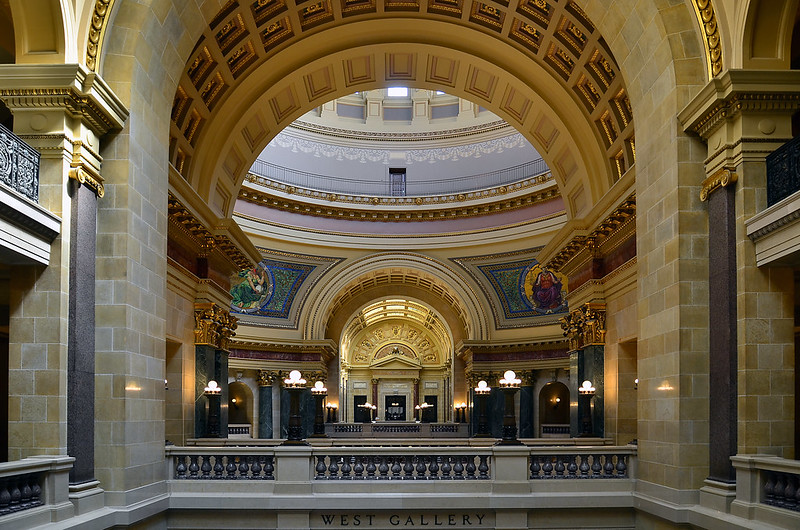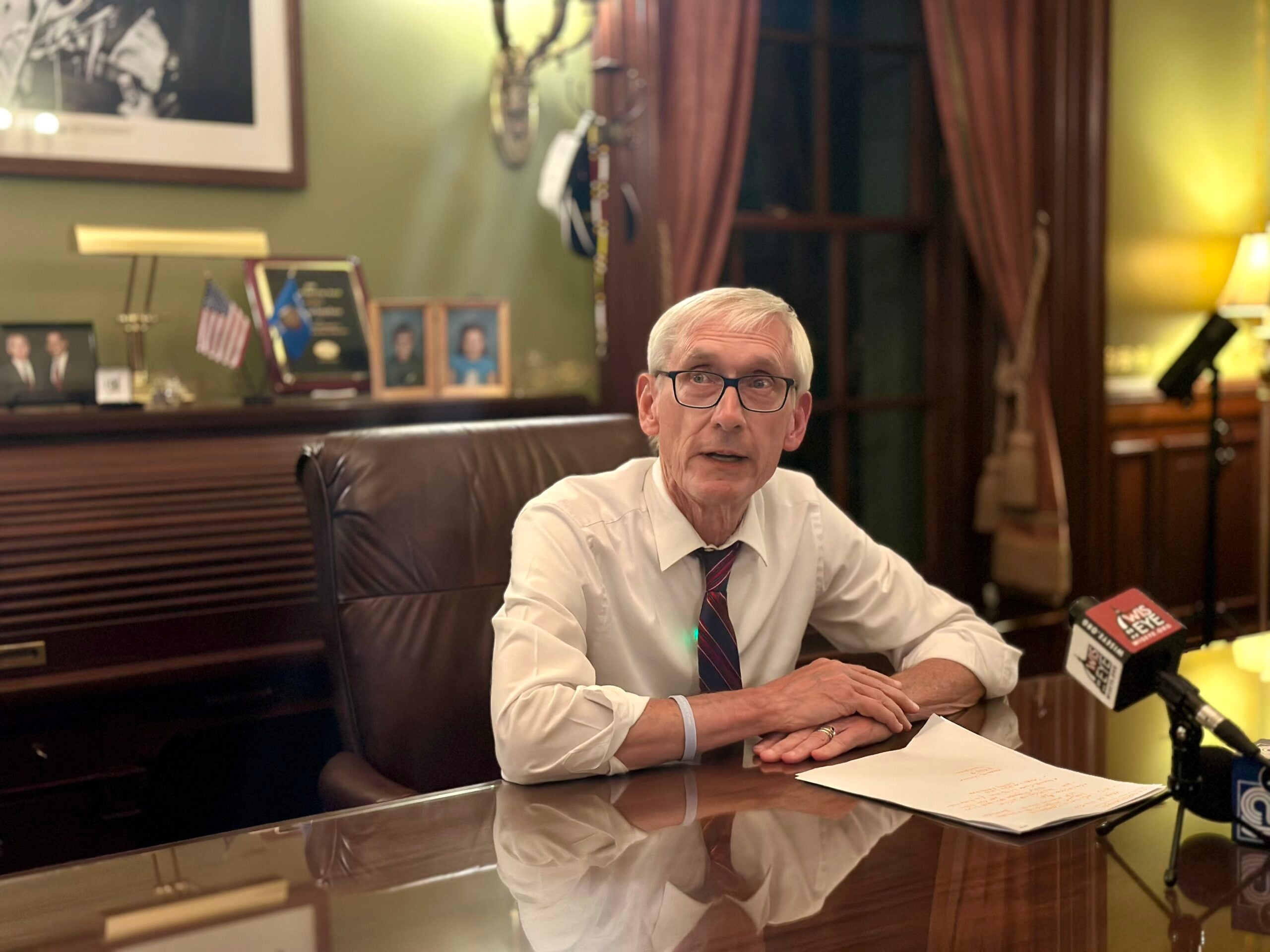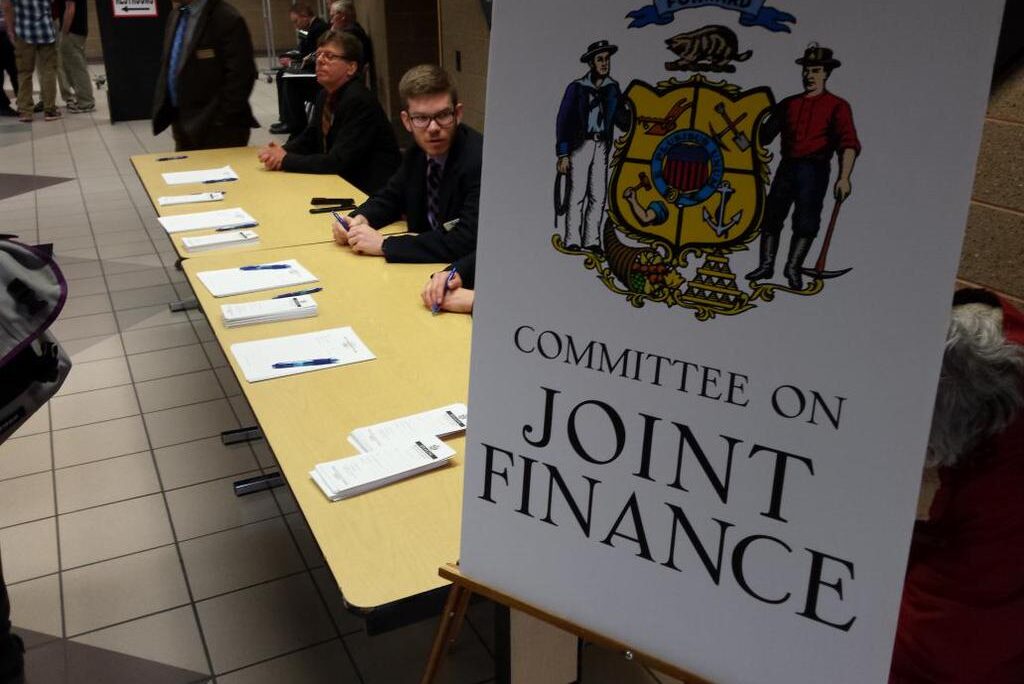This presidential year could be full of swing state drama in Wisconsin, but the book on the legislative session is basically closed.
The Senate likely held its final final regular day of business on March 12 and the Assembly met for the final time on Feb. 22.
In their final few months of business, lawmakers approved some significant bills, including redrawing the state’s legislative districts, establishing guaranteed admission to the Universities of Wisconsin for some students and enacting a childcare tax credit. Lawmakers also approved several proposed constitutional amendments, a few of which will go before voters this year.
News with a little more humanity
WPR’s “Wisconsin Today” newsletter keeps you connected to the state you love without feeling overwhelmed. No paywall. No agenda. No corporate filter.
Some lawmakers left disappointed, as their priorities on issues from abortion to healthcare either didn’t clear the Legislature or were vetoed by Democratic Gov. Tony Evers.
Here are some of the most significant legislative successes and failures of 2024.
Maps, UW deal among big bills to reach the finish line this year
When the Wisconsin Supreme Court overturned the state’s political maps in December, few expected Republican who run the Legislature to agree with Evers on new maps to replace them. But that’s exactly what happened.
Republicans approved a set of maps in February that will determine which state Senate and Assembly district each Wisconsinite resides and votes in. They were drawn by Evers as part of the court case.
He signed them into law on Feb. 19, and they’ll be in effect for this year’s elections, although there’s an open question about how they should be used in cases of special elections or recalls.
READ MORE: What do Wisconsin’s new maps mean for the Legislature’s balance of power?
Another bill that took months to take shape was a deal between Assembly Speaker Robin Vos, R-Rochester, and the Universities of Wisconsin Board of Regents. Vos wanted to do away with positions related to DEI, or diversity, equity and inclusion. In exchange, he agreed to approve UW staff raises and building projects that were included in the state budget.
Evers, who was critical of the deal, eventually signed off on multiple components, including $700 million for building projects like a new engineering building at UW-Madison and guaranteed admission to the UW for the top-performing students in each graduating class across the state.
READ MORE: Vos says UW deal ‘first step’ toward eliminating ‘cancerous’ DEI practices
Republicans tried on several occasions to move major tax cuts over the finish line but were spurned by Evers. However, on March 4, Evers approved one portion of a GOP tax cut package: a tax credit for child care.
Child care has been a major theme of this legislative session, though for the most part, Evers and Republicans had vastly different views on how to address it. The new tax credit was the exception, and will allow residents to claim up to 100 percent of the federal tax credit for child and dependent care on their state taxes starting in the 2024 tax year.
READ MORE: Wisconsin’s child care crisis affects all residents. Here’s how it can be fixed
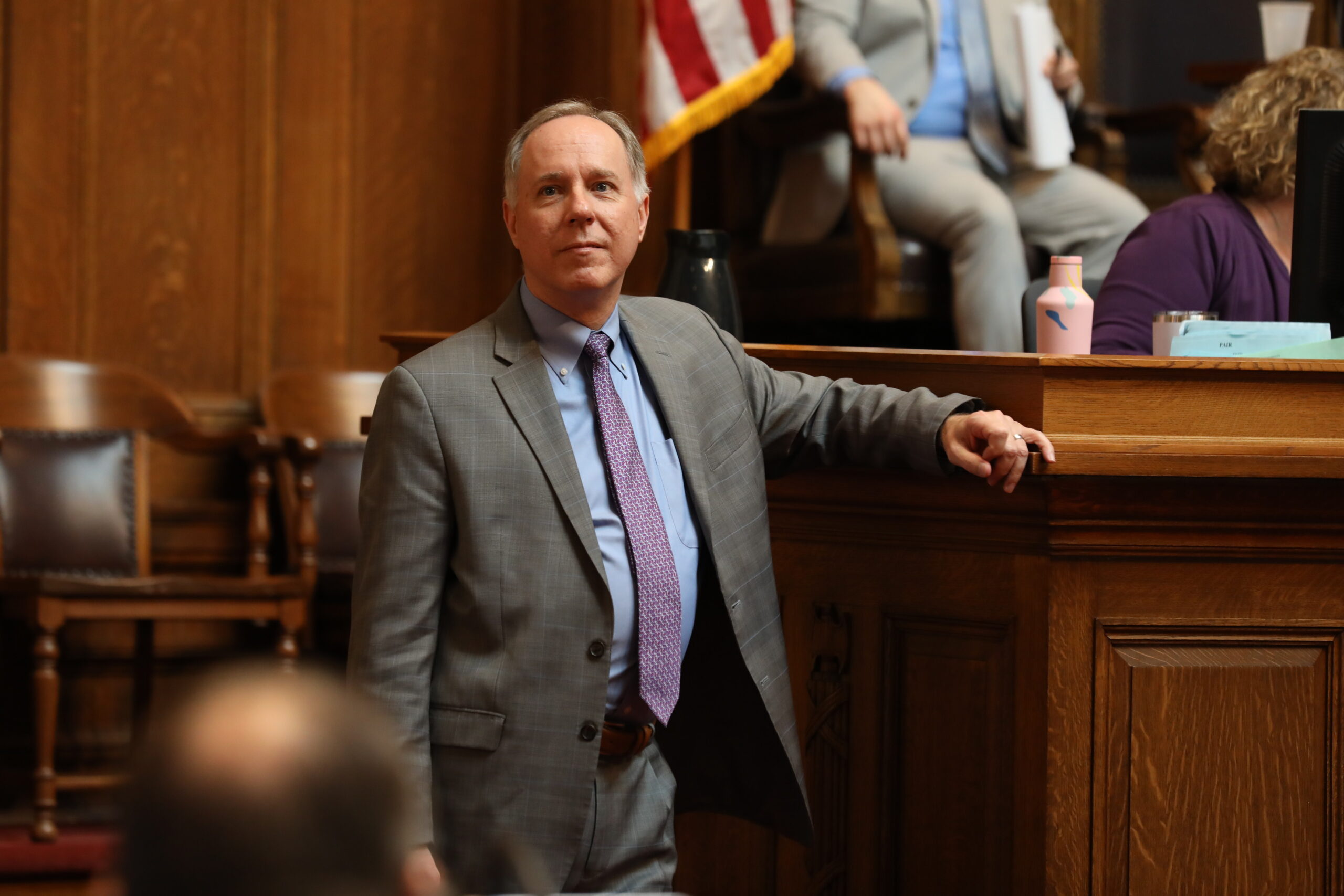
Despite single-party control of the Legislature, other big ideas went nowhere
While Republicans held lopsided majorities in the Legislature this year, that didn’t mean they agreed on everything.
A bipartisan proposal to expand Medicaid coverage to low-income moms for up to a year postpartum passed the Senate almost unanimously, receiving only one no-vote. It also had bipartisan support in the Assembly. Outside of Wisconsin, this policy has been adopted in 46 other states and Washington, D.C. But it was never brought to the Assembly floor for a vote.
READ MORE: Wisconsin’s Medicaid postpartum protection lags most of the country
Another bipartisan bill would have allowed absentee ballots to be readied for processing a day before Election Day. Advocates from both sides of the aisle argue this would improve voter confidence in the electoral process.
In Milwaukee, election results are often not ready until late at night, and in 2020, this sparked conspiracy theories about illegal “ballot dumping.” The bill’s advocates said processing — but not counting — absentee ballots a day earlier would allow cities to report their final votes faster.
Ultimately, Senate Republicans said a presidential election year was not the right time to change processes.
READ MORE: Bipartisan proposal to allow clerks to process absentee ballots earlier passes Assembly
As the legal status of abortion in Wisconsin moves through the courts, Assembly Republicans proposed what they described as a compromise: a voter referendum on restricting abortion access to the first 14 weeks of pregnancy. That would be down from 20 weeks, the limit approved by Republicans in 2015.
The 14-week limit was opposed by Democrats, who advocate for no or few restrictions on abortion access, as well as by some Republicans who said 14 weeks was still too many. It passed the Assembly but never got a vote in the Senate.
READ MORE: GOP bill would restrict abortions after 14 weeks
As states around the upper Midwest legalized marijuana access, Wisconsin remained an outlier on that front. While Democrats, including Evers, have pushed for full legalization, Speaker Vos has said recreational marijuana will not happen on his watch.
A proposal by Assembly Republicans would have established a limited medical marijuana program, but it was vastly different than a version backed by Senate Republicans. Ultimately, neither proposal received a vote, and nothing passed.
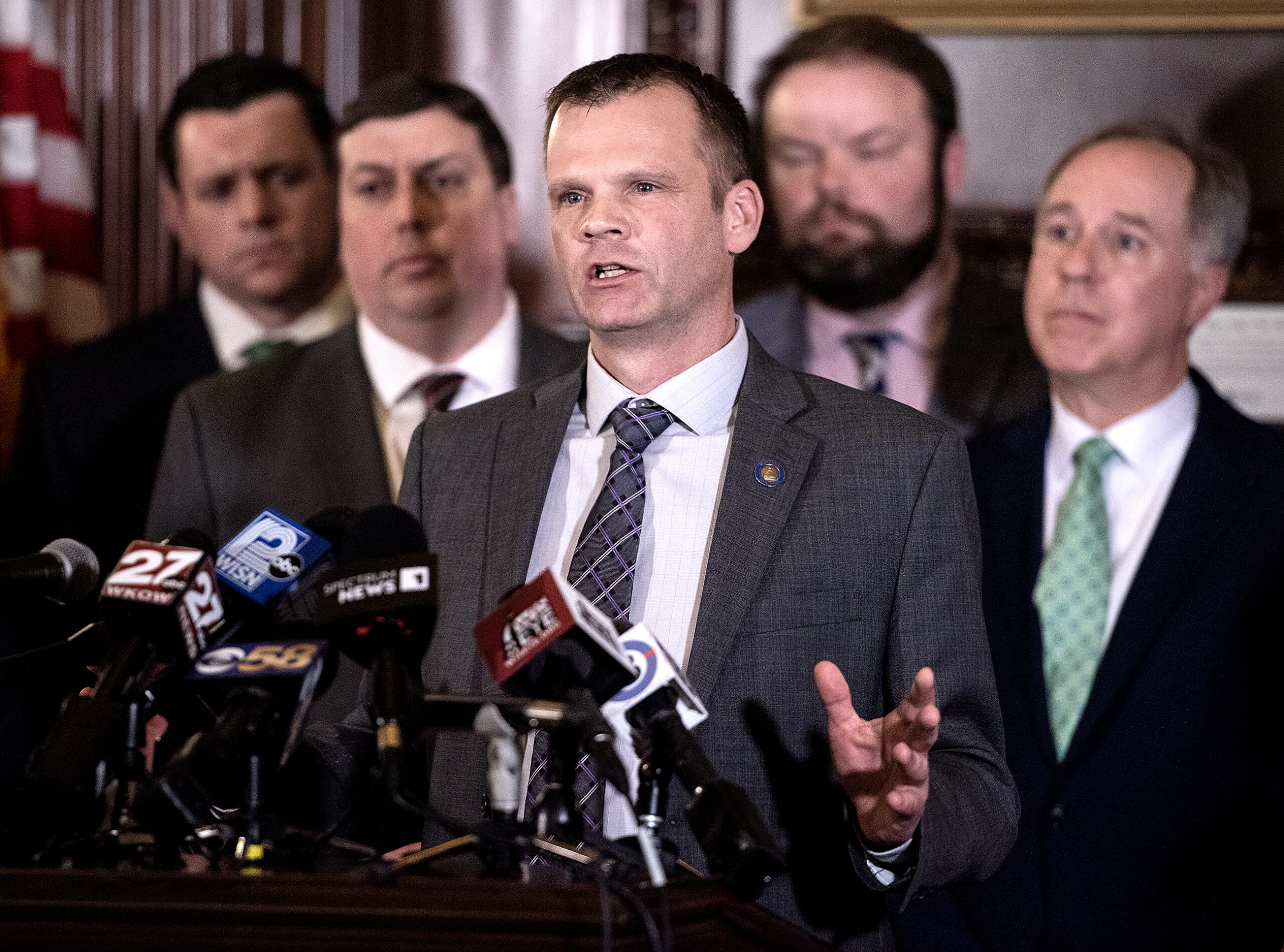
Some GOP bills never stood a chance
While his veto pen hasn’t been nearly as busy as a couple years ago, Evers has still rejected plenty of Republican bills that hit his desk.
One that would have limited access to gender-affirming healthcare for minors. He is also expected to veto another that would prevent transgender students from playing on girls’ sports teams. Evers has pledged to veto any bill that he says will target trans people.
Evers is also expected to veto a “parental bill of rights,” which would allow parents to review school curricula and also determine the name and pronouns their kids can use at school. A similar bill passed the Legislature in 2022, and Evers rejected it.
Evers has also signaled he will to veto a bill aimed at addressing PFAS contamination that passed on party lines. It contains a clause exempting “innocent landowners” from cleanup requirements, a provision Republicans say will protect farmers or small property owners from being stuck with cleanup costs for a problem on their land that they didn’t cause. Democrats call it a gimme to industry that also undermines the Department of Natural Resources’ ability to enforce cleanup requirements. Evers has called that requirement a “poison pill.”
READ MORE: GOP lawmakers send PFAS bill to governor’s desk as Evers signals likely veto
Many Democratic bills never made it to the governor because they stood no chance of receiving a vote in the GOP-held Legislature. These included restoring the abortion access once guaranteed under the Roe v. Wade decision, a 12-week paid family leave program, expanding Medicaid under the Affordable Care Act and fully legalizing both medical and recreational marijuana.
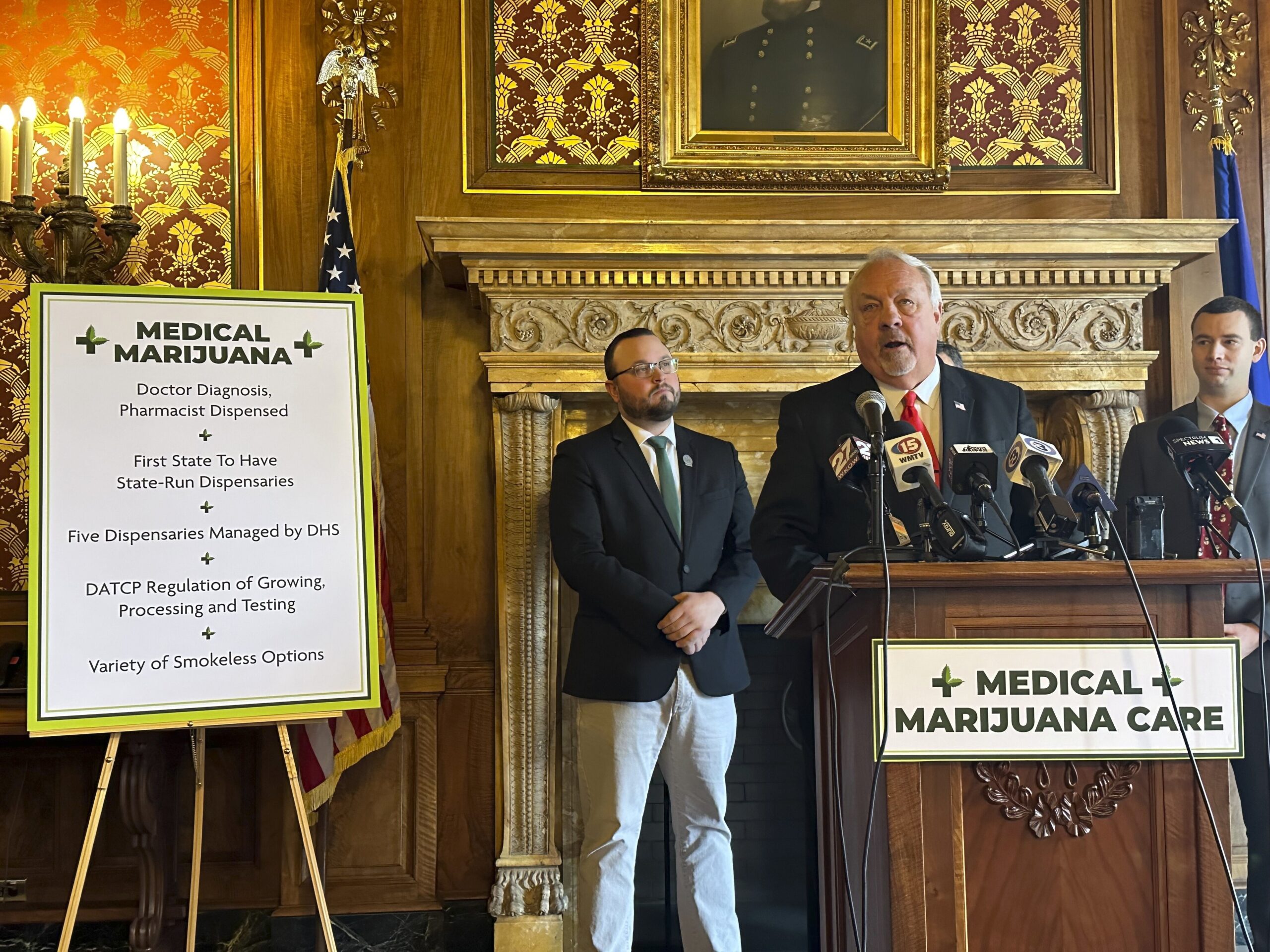
Proposed constitutional amendments bypass governor’s veto, and will soon head to voters
The typical push-and-pull of divided government doomed many GOP bills, and many Evers initiatives, too. But for the Legislature, there’s another path toward making big changes to public policy, one they took more frequently this session.
Unlike a bill, which requires approval from the Legislature and the governor to become law, constitutional amendments bypass the veto process. Instead, they must pass two consecutive sessions of the Legislature and then be approved by voters. In essence, they’re harder to pass but far more permanent.
Several proposed constitutional amendments will go before voters later this year. One on ballots in April would ban the use of private funds in elections. Another would change how the state spends federal money.
The Legislature also gave initial approval to other proposed amendments, including one to forbid houses of worship from being closed during a state of emergency — like a pandemic — and another to forbid future governors from using their veto pens in a way that would create or increase taxes.
Wisconsin Public Radio, © Copyright 2025, Board of Regents of the University of Wisconsin System and Wisconsin Educational Communications Board.

